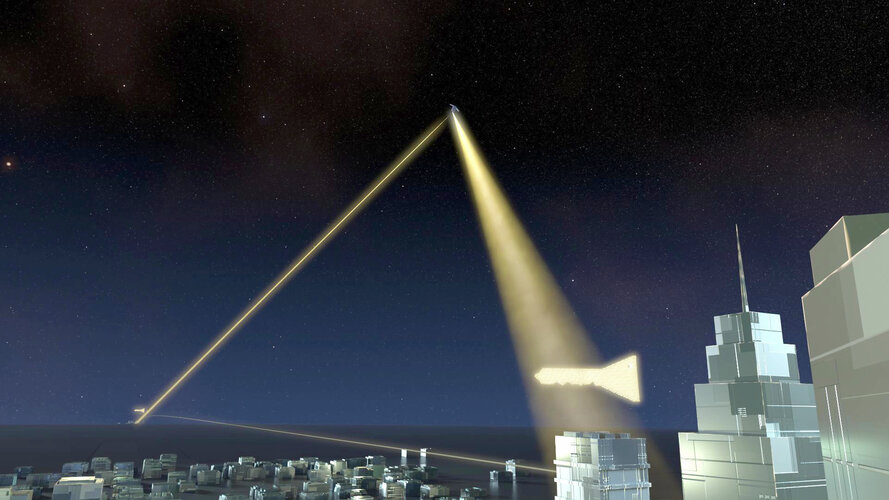The Eagle-1 satellite will be the first space-based quantum key distribution system in Europe to be developed in this partnership, under a contract just agreed between ESA and SES headquartered in Luxembourg, with support from the European Commission. SES is leading a consortium of more than 20 European companies.
The satellite will pave the way towards an ultra-secure network that relies on the laws of quantum mechanics to keep information safe, significantly boosting European autonomy in cybersecurity and communications.
Eagle-1 will demonstrate the feasibility of quantum key distribution technology – which uses the principles of quantum mechanics to distribute encryption keys in such a way that any attempt to eavesdrop is immediately detected – within the EU using a satellite-based system. To do so, the system will build on key technologies developed under ESA’s Scylight programme, with the aim of validating vital components supplied within the EU.
It will demonstrate and validate quantum key distribution technologies from low Earth orbit to the ground and provide valuable mission data for the development and deployment of the European Quantum Communication Infrastructure (EuroQCI), which will be integrated into the European secure connectivity system. It will allow the EU to prepare for a sovereign, autonomous cross-border quantum secure communications network.
The system will initially use an upgraded optical ground terminal from the German Aerospace Centre (DLR) alongside a new optical ground terminal to be developed by a team from the Netherlands. The Eagle-1 platform satellite will be operated by Luxembourg-headquartered SES. Other ESA Member States involved in the project include Austria, Belgium, the Czech Republic, Italy and Switzerland.
The Eagle-1 satellite is due to launch in 2024 and will then complete three years of in-orbit validation supported by the European Commission.



